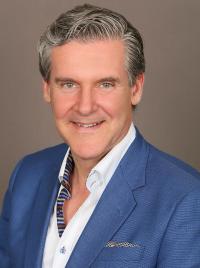
- Neuroprotection of the injured spinal cord
- Regenerative medicine for spinal cord injury (SCI) using stem cell and tissue engineering approaches
- Mechanisms of glial-axonal signalling using electrophysiological and imaging approaches
- Spinal cord and brain repair with a focus on Cerebral Palsy
- Developing and characterizing animal models of cervical spondylotic myelopathy (CSM), the most common cause of spinal cord dysfunction, and examining strategies for improving outcomes in this condition
- Clinical trials bringing lab-tested therapeutics to clinic
Our laboratory integrates molecular, imaging, electrophysiological and neurobehavioural approaches to examine the pathophysiology and treatment of central nervous system injury, using spinal cord injury as a model system. Current studies in SCI are focused on understanding the mechanisms of the secondary injury after SCI with a focus on examining the role of inflammation, development of novel neuroprotective strategies and the use of stem cell transplantation strategies to repair the spinal cord. The translation from benchside to bedside is a key goal of our research and is exemplified in the team's involvement in clinical trials.
Our laboratory plays a leading role in SCI-NET (Spinal Cord Injury New Emerging Team)--a unique, interdisciplinary team of clinicians and scientists with expertise in micro-neurosurgery and neurotrauma (Fehlings and Tator, UHN), stem cell and growth factor biology (van der Kooy, Nagy and Morshead, University of Toronto), tissue engineering and nanotechnology (Shoichet, University of Toronto).
SCI-NET is examining three integrated strategies to treat SCI:
- Application of experimental models of cervical SCI for regenerative therapeutics
- Determine the efficacy of exogenous stem cell mediated recovery following cervical SCI
- Determine the efficacy of pharmacologically stimulated endogenous stem cell mediated recovery following cervical SCI
- Explore combinatorial treatments for cervical SCI involving chABC and endogenous/exogenous cells
The SCI-NET team is a key part of the regenerative medicine program at the McLaughlin Center for Molecular Medicine which provides an excellent, collaborative research environment.
Finally, Dr. Fehlings is involved with several clinical trials:
- Examining the use of Riluzole in cervical spondylotic myelopathy (CSM), a common spinal condition
- Examining the use of Riluzole in spinal cord injury (RISCIS)
- Approaches for the treatment of metastatic epidural spinal cord compression and CSM
- Surgical Timing in Acute Spinal Cord Injury Study (STASCIS) (published)




 https://orcid.org/0000-0002-5722-6364
https://orcid.org/0000-0002-5722-6364